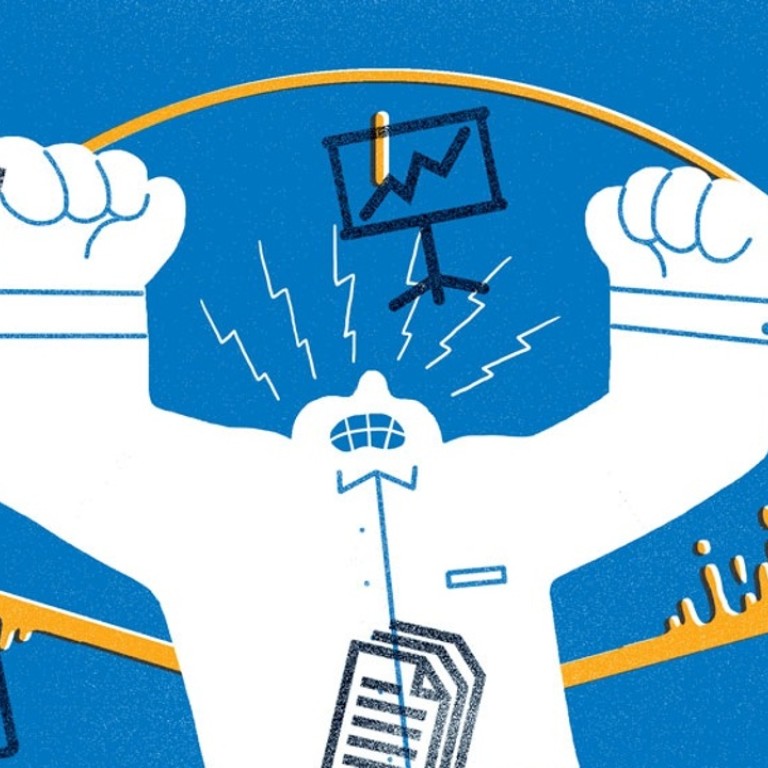
Abusive leadership and how to avoid doing it
Keeping control of anxiety is key
Have you ever lost your temper at a subordinate? Abused someone at a meeting but not really understood why?
It’s not easy to be a leader in the 21st century as the job is hugely demanding both emotionally and physically as we all struggle with increasing work demands from clients, customers and staff. Not only that but it is hard to take breaks as we are bombarded with emails, Skype meetings and phone calls 24 hours a day from people around the world who work different office hours.
It’s not surprising therefore that leaders can feel the pressure and sometimes lose their tempers in difficult situations.
Recent research published in Leadership Quarterly by myself and fellow UNSW Australia researcher Michael Collins led to the development of a new model of leadership that shows how some leaders have the right stuff to be able to handle all this stress while others crumble under the pressure and become abusive.
Some chief executives have high attentional capacity and tend not to feel anxious. As a result, they don’t get overwhelmed when faced with a difficult situation. These leaders keep a firm grip on their emotions, are icy calm, and think clearly even when the chips are down. These people don’t succumb to anger, which they know will only alienate staff, narrow attention and lead to bad decisions and outcomes. Instead these leaders can proactively engage in the important task of leading and solution finding. Their staff learn that their good decision making can be relied upon and they know that they will not be victimised and turned into scapegoats by their angry boss.
Leaders low in anxiety and high in self-regulation capacity are more likely to be constructive leaders
On the other hand, there are those leaders who walk into a meeting worried with anxiety and concerns. As the pressure piles on, they focus on the threats and the dangers such that they get overwhelmed by the difficulty of the task ahead. This is when leaders become abusive. Unfortunately, there is a vicious cycle in which attention becomes more narrowed as they focus on the threat which then provides less and less capacity to solve the important issues in a rational and sensible manner. Often all this happens in a very non-conscious way, such that the leader feels that he or she has little control over what is happening. While regret might be felt afterwards, there is unfortunately a big chance the cycle will repeat itself when they’re placed in the same situation.
A new neurocognitive model shows that people who are high in anxiety and low in self-regulation capacity are more likely to show these troubled forms of leadership, whereas leaders low in anxiety and high in self-regulation capacity are more likely to be constructive leaders.
If there is one message for leaders, it is that if you happen to be a worrier and find it hard to cope with difficult tasks then you might also be the kind of person who loses their temper easily.
While other researchers have considered abusive leadership as a permanent way of dealing with things, our new research suggests there are ways to reduce the chances of a leader being labelled as abusive.
The first things to look for are the symptoms of anxiety. There can be many signs, including problems sleeping, trouble concentrating, stomach problems, loss of sex drive, tension headaches, loss of interest in work, feeling irritable and depressed.
Then think about ways to manage the issue.
Some ways include taking better care of yourself. One very effective and easy way of managing stress is taking regular exercise, which can increase energy and lift the mood. Think about going for a run or a swim first thing in the morning or even going for a lunchtime walk. Yoga is also a great exercise for effective anxiety management as it gets you active, increases blood flow and helps develop mindfulness. Of course there are many other forms of exercise, from dancing to golf.
There are also cognitive ways of managing anxiety such as learning to put problems into context, effective prioritisation and organisation of the working day, and talking things through with a supportive listener.
It is always unwise to turn to alcohol, tobacco or other drugs as a way of managing anxiety and stress – they may seem to work in the short term but in the long term they will create more problems and increase anxiety.
If this is a habitual problem, you may be best to seek help from a trained counsellor or executive coach. In the modern world there is nothing demeaning about getting help from others. After all, we get assistance in most other things we do, so there is no shame in getting support when we have a very demanding job.
A good psychologist or coach should help you question or even break habits that cause anxiety (such as always seeking perfectionism, seeking too much control, or negative thinking about yourself, people and situations) , help you identify when you might be about to lose control so that you can step away, and give you ways of reducing stress. Humour, for example, is another great way of reducing anxiety as it provides a way of seeing the problem in a less serious way.
Keeping control of anxiety is vital to reduce the chances of you being an abusive leader. Keep the monster within under control! It will enable you to keep your job and ultimately will lead to better motivated staff and better work outcomes.
Chris Jackson is a professor of business psychology in the school of management at the UNSW Australia Business School
